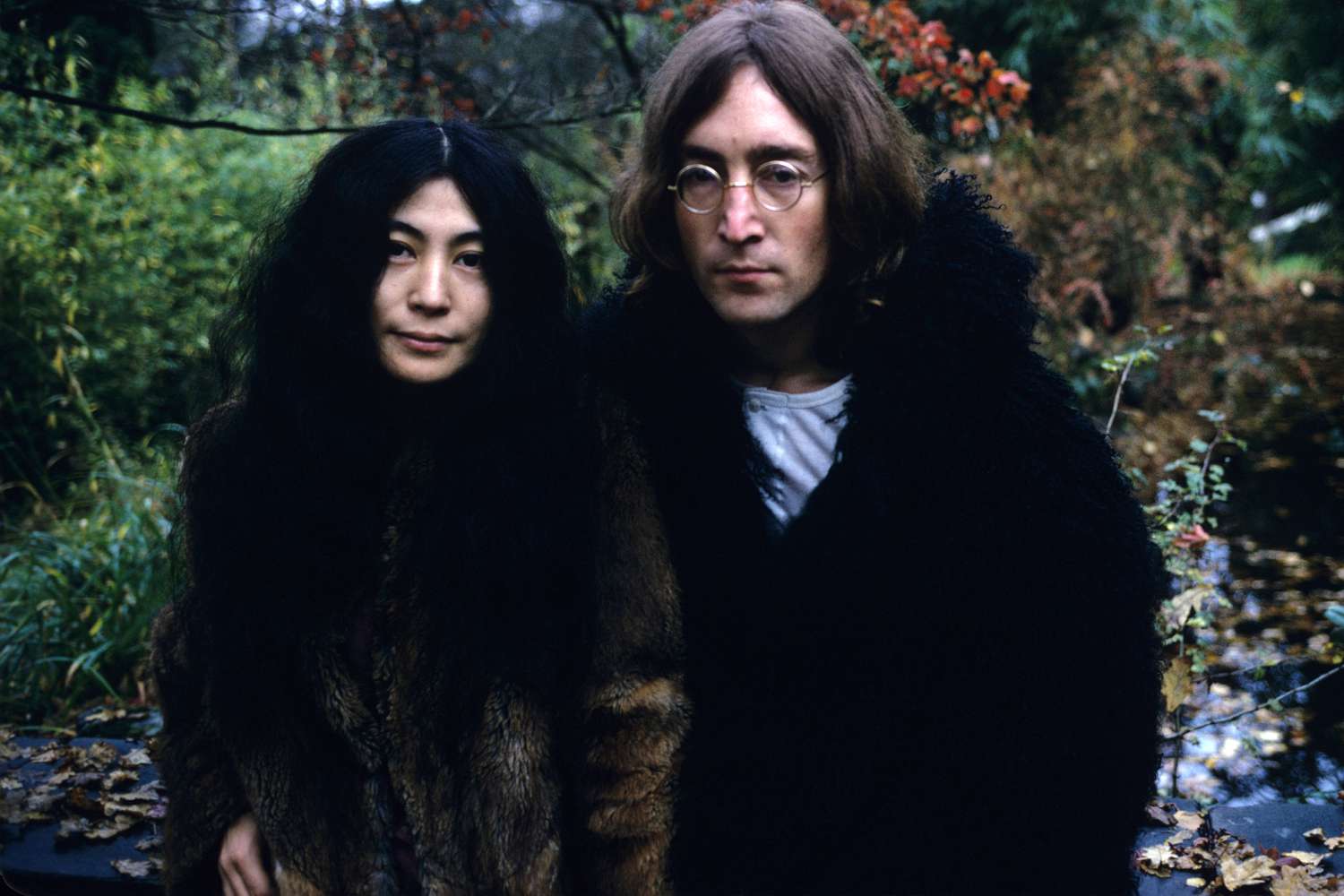- Sean Ono Lennon says his parents John and Yoko shared a “legendary love”
- He has assumed the mantle of managing his family’s singular musical legacy
- “My dad declared to the world that ‘John and Yoko’ were one word,” Sean tells PEOPLE. “I think he always had his heart set on her”
John Lennon and Yoko Ono’s efforts to bring peace to the world in the early ‘70s threw their private lives into chaos. Their outspoken antiwar stance made them enemies of then-President Richard Nixon, who abused his power in a vindictive crusade to have them kicked out of the country by any means necessary. The harassment reached its peak around the time the couple entered New York City’s Record Plant studios in the summer of 1973 to begin work on Lennon’s solo album, Mind Games.
An expansive new box set, overseen by their only son, Sean Ono Lennon, provides fascinating insights into the unsettling period. “The FBI were tailing them and tapping their phones,” the 49-year-old tells PEOPLE. Recently declassified documents reveal that the government was conspiring to have Lennon arrested during this period on phony drugs charges. “Nixon was trying to deport them. It was really terrifying.”
While anthems like “Give Peace a Chance” and “Imagine” had long singled them out a threat in the eyes of Nixon’s reactionary administration, persecution against the pair didn’t begin in earnest until they relocated from Lennon’s native England to New York City at the end of 1971. Settling in Manhattan’s liberal Greenwich Village enclave, they soon attracted a crowd of ultra-radical activists like Abbie Hoffman and Jerry Rubin, who aimed to harness the famous couple’s celebrity to promote their pet causes. “They wound up hanging out with some ultimately very nefarious people by mistake,” Sean explains.
Bettmann/Getty
The first album Lennon and Ono recorded in their newly adopted hometown was 1972’s Some Time in New York City, a raw collection of diaristic songs depicting life at the front of the picket line. Melody took a backseat to messaging as they sang of women’s liberation, the Attica prison riot, draconian drug policies and the deadly conflict in Northern Island. Those who missed the “ripped from the headlines” nature of the lyrics were offered a hint with the album’s cover, which mimicked the front page of a newspaper.
The album was met with a lukewarm response from fans, who were expecting something more along the lines of the previous year’s “Imagine,” with Lennon’s delicate vocals hovering atop the lush orchestration and undulating piano figure. Moreover, it didn’t earn them any friends in the State Department.
“Some Time in New York City was basically a complete album of activism,” Sean says. “It’s punk. They just went in the studio and banged ‘em out. Which is a cool — it’s a beautiful album and I love it. But it was not very well-received. So I think my dad was like, ‘You know, maybe I should get back to making music that people want to listen to.’”
This was the philosophy behind Mind Games, which Sean characterizes as an “antidote” to the rough edges of their previous record. “You hear Mind Games and it’s like a release from all that,” he continues. “That record represents my parents stepping away from radical activism a little bit. I think they felt like they didn’t want to be in that world anymore. They realized that it was not a fun road for them and so they wanted to make music that was less directly attacking the establishment and focusing more on peace and love again. Mind Games is my dad returning to making music as a high art form, as opposed to just a documentary expression of his radical ideas of the time.”
Susan Wood/Getty
That’s not to say Mind Games isn’t a reflection of its era. Occasional political barbs are folded in the tracklist, albeit a little more subtle than those found on Some Time in New York City. “”Bring On the Lucie (Freda Peeple)” is a pun-y take on the sloganeering of recent songs like “Power to the People,” and the title track features Lennon singing a discrete “make love not war” on the outro.
The most pointed reference to current events is “Nutopian International Anthem,” a playful protest of their deportation battle with the American government. The title references the “conceptual” nation of Nutopia created by Lennon and Ono. It was envisioned as a utopian realm with no passports, no land, no armies and no laws —a state of mind rather than a geographic location. They announced its existence at a press conference held on (appropriately enough) April Fools Day 1973, declaring themselves “ambassadors” and thus entitled to diplomatic immunity to remain in the United States. They ended the announcement by unveiling the flag of their new nation: a plain white handkerchief. Keeping with the minimalist tone, the “Nutopian International Anthem” heard on Mind Games contains three seconds of silence.
The press conference was a moment of levity in the midst of a very trying time for the couple. According to Sean, comedy was how Lennon coped with stress. “I feel like everything my dad did, even at the most serious moments, had a bit of humor,” says Sean. “People who grew up with him in Liverpool say that he was the kind of guy who would make a joke even at a very difficult time.” (After years of legal battles, John won the right to stay in the US on Oct. 7, 1975 — two days before Sean’s birth.)
The pressure of the period put a strain on Lennon and Ono’s relationship, leading to a temporary split in the fall of 1973 — the same time that Mind Games arrived in stores. The timing of the 18-month separation (mythologized as Lennon’s so-called “Lost Weekend,” when he was reportly partying hard in Los Angeles) has led many fans to view Mind Games as a breakup album. But Sean strongly disagrees. For proof, he points to the album cover, a collage Lennon made featuring photos of himself and Ono. “My mother is this giant mountain in the distance,” he explains, “and dad is this diminutive little man receding into nowhere.” To Sean, the image was a self-portrait, summing up how Lennon saw Ono’s influence. “His entire life and art was infused with his relationship with my mom.”
The ardent lyrics on Mind Games could only come from the open heart of a deeply devoted husband. On “Out of the Blue,” he sings: I was born just to get to you / Anyway, I survived / Long enough to make you my wife.
“The whole album is about my mom,” says Sean. “They’re mostly love songs about her. My dad declared to the world that ‘John and Yoko’ were one word. I think he always had his heart set on her. He was so in love with her. They had a legendary love and I think that this album is infused with that love. You can hear it.”
For more from Sean Ono Lennon, pick up the latest issue of PEOPLE, on newsstands everywhere Friday.
Read the full article here








